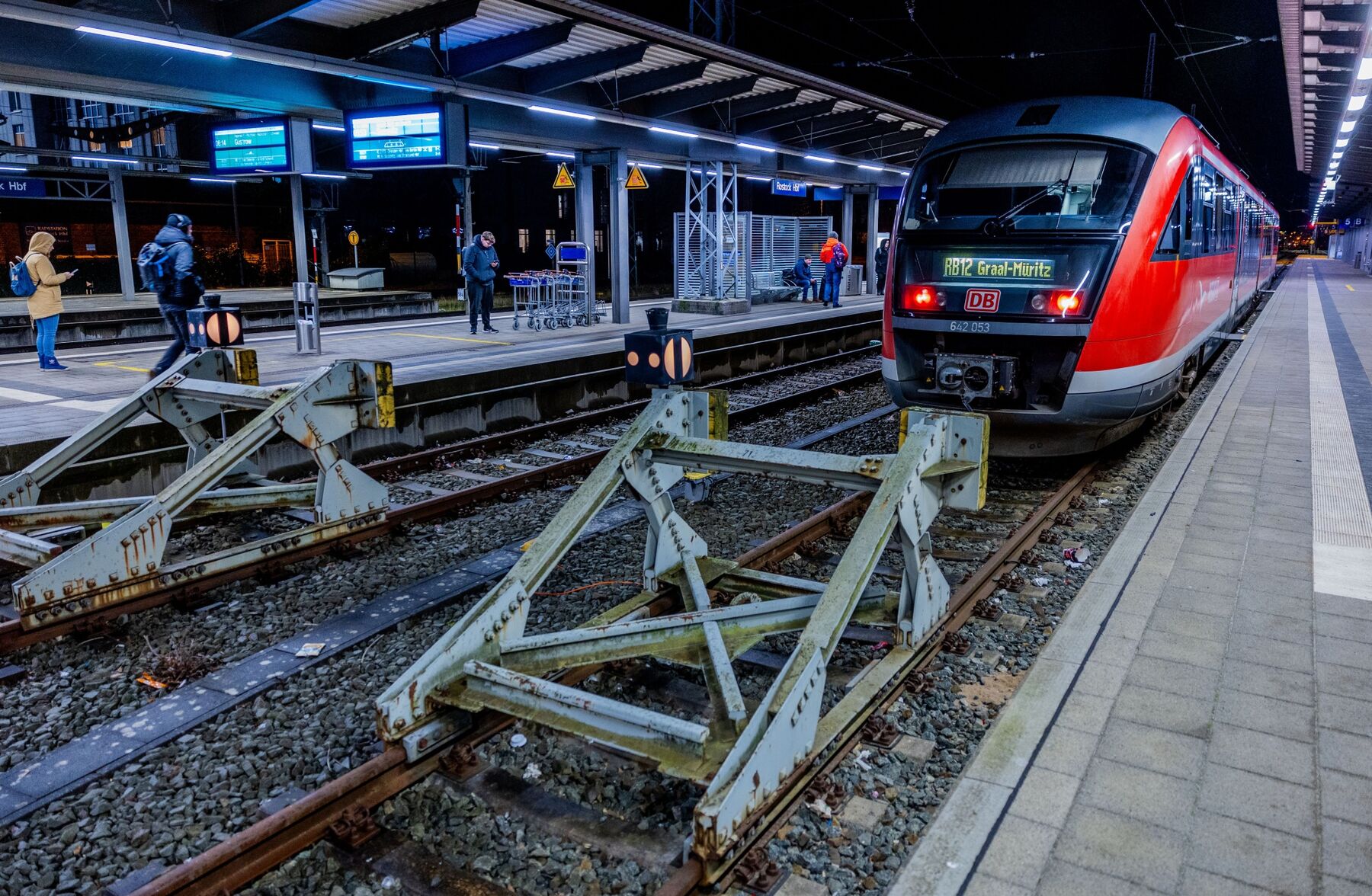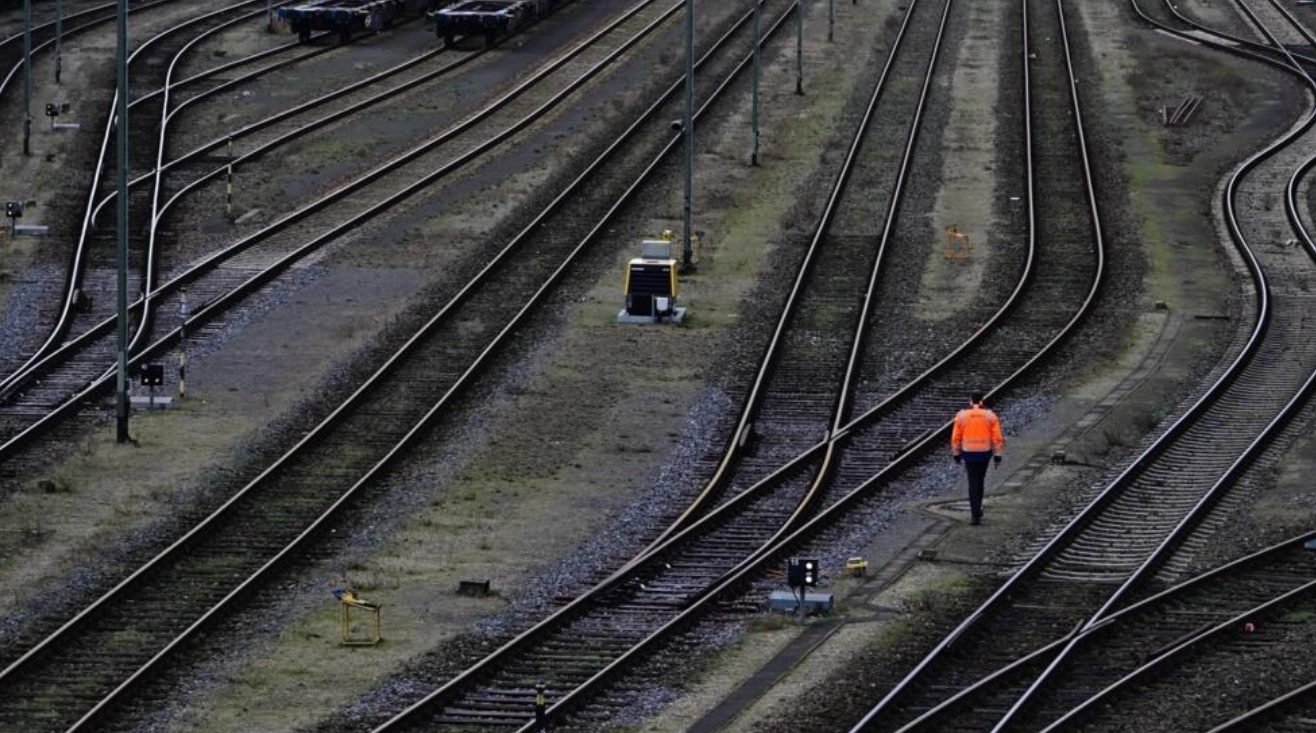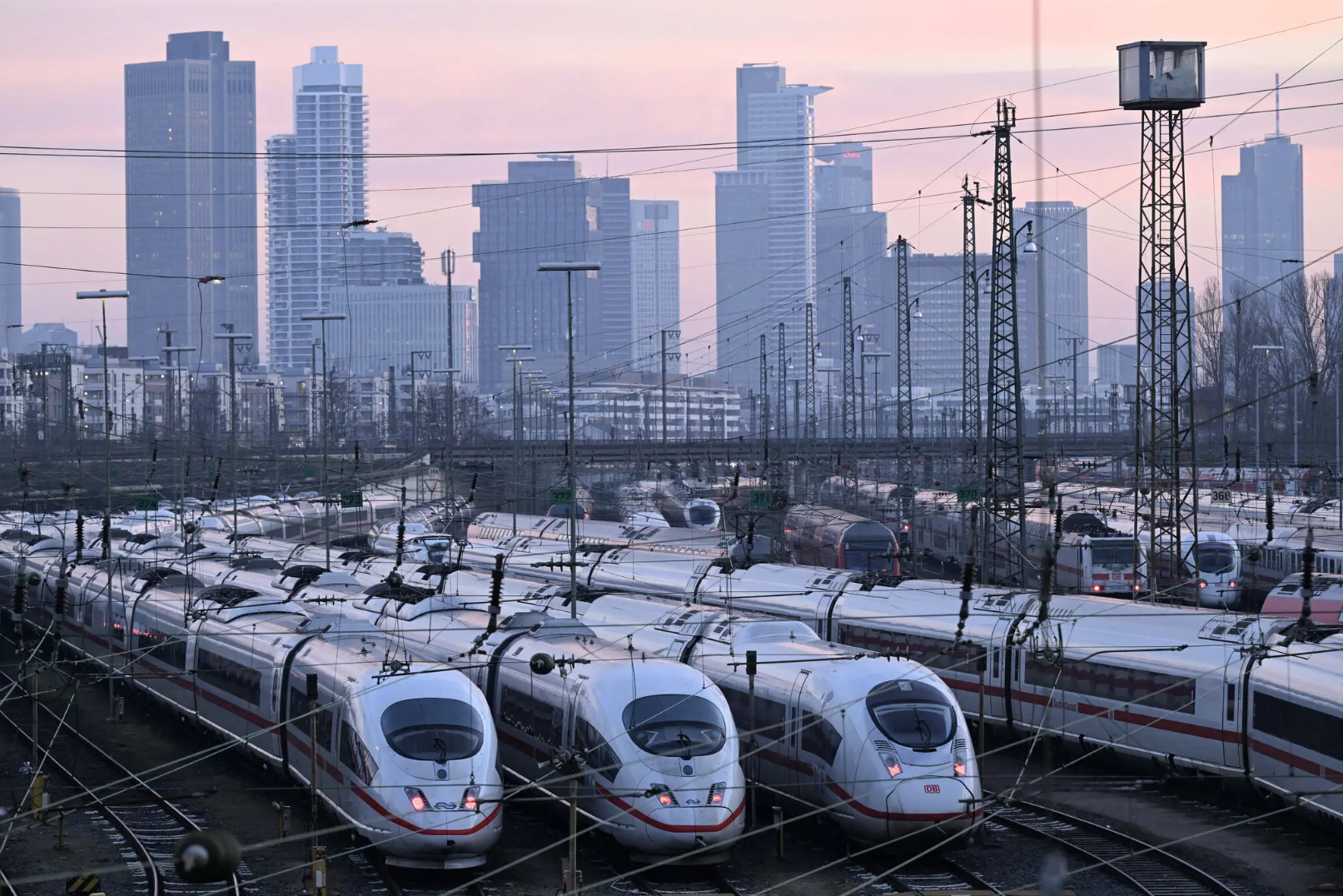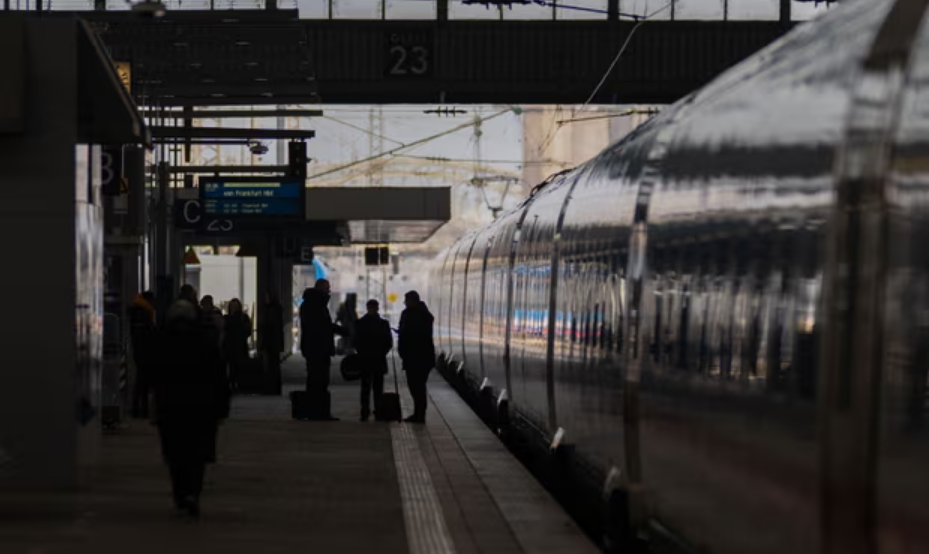The pay dispute between Germany's state rail operator Deutsche Bahn (DB) and the Train Drivers' Union (GDL) is entering its next round.
Following a three-day strike earlier this month, the GDL has called for another six-day strike, with passenger traffic disrupted from the morning of January 24 to the evening of January 29. This would be the longest rail strike in German history. The freight strike began earlier on January 23 and also lasted until the evening of January 29, for a total of 144 hours.
The strike is not just hurting DB. It is also affecting other German companies that transport raw materials or goods by rail. The consequences will also be felt in neighboring countries.
Nearly 60% of DB’s freight services are carried out across Europe. According to the Federal Ministry for Digital Affairs and Transport, six of the 11 freight corridors in Europe run through Germany – a country located in the heart of the “old continent”.
As Thomas Puls, Senior Economist for Transport and Infrastructure at the German Economic Institute (IW), puts it: “Germany is the logistics hub of Europe.”

A Deutsche Bahn (DB) S-Bahn train in Mecklenburg-Western Pomerania, January 22, 2024. Photo: Bloomberg
German Transport Minister Volker Wissing has criticised the six-day industrial action as “sabotage”, adding to pressure on supply chains already facing disruptions due to attacks by Yemen’s Houthi rebels on shipping in the Red Sea.
The prolonged action “is an attack on the German economy,” DB spokeswoman Anja Broeker said, noting that the cargo traffic carried by the company includes “supplies for power plants, oil refineries.”
“DB Cargo will do everything to secure the supply chain, but clearly there will be some impact,” the spokesperson warned.
Unforeseeable damage
The cost of such strikes is difficult to assess. Without actual production losses, costs cannot be deducted from any statistics, Puls said. Analysis of past strikes suggests they can cost as much as €100 million ($110 million) a day.
The cost of a six-day strike would no longer increase linearly, but would in some cases multiply. “We would quickly see losses in the billions of euros,” said Michael Grömling, head of economic research at IW.
In addition, the impact of the freight strike will be felt even later in the form of traffic disruptions. After the last freight strike, it took days for traffic jams to clear. DB Cargo alone is forecasting a loss of around 25 million euros per day.
Commerzbank chief economist Jörg Krämer estimates the strike will reduce the value created in the transport sector by around 30 million euros per day, equivalent to 0.3% of daily gross domestic product (GDP).

Rail traffic is at a standstill as German train drivers go on strike for six days, from January 24-29, 2024. Photo: RFI
“The economic damage would be much greater if factories had to stop production due to supply problems,” Mr. Krämer warned. “In addition, the rail strike is causing stress for citizens and damaging Germany’s image as a business investment destination.”
Frank Huster, CEO of the German Transport Logistics and Forwarding Association (DSLV), said the strikes could cause logistics companies to lose confidence in rail freight transport.
The industry's reputation has been severely damaged by repeated technical failures, a severely dilapidated rail network and ongoing infrastructure problems, Mr Huster said.
This is not a good start for the goal of increasing the share of rail freight transport. According to the German government coalition agreement in 2021, rail's share of freight transport will increase to 25% by 2030, from the current level of 19%.
Essential transport
A large portion of goods, around two-thirds, are transported by road in Germany. Less than a fifth is transported by rail. However, rail freight is very important, IW expert Puls told DW.
For example, major industries such as steel and chemicals depend on rail transport. Without black coal transported by rail, steel industry furnaces and power plants that produce electricity would not be able to operate.
For some dangerous goods used in the chemical industry, rail transport is essential and is even required by law because the risk of train traffic accidents is lower.
Products used by the automotive industry as well as finished vehicles are also loaded onto trains. All vehicles destined for export are transported by train to the international port of Bremerhaven, where they are loaded onto ships, Puls said.
Once the train drivers go on strike, there won't be enough trucks to move that many vehicles over the road, according to Mr Puls.

Around 7.3 million people take trains in Germany operated by Deutsche Bahn (DB) every day. Photo: Getty Images
As in every crisis, there are not only losers, but also winners. Although DB is the largest rail freight provider (with a market share of over 40%), there are also many private providers who handle the remaining freight volumes. They will not be directly affected by the strikes.
“Around 60% of rail freight traffic is still running as usual and often even reaches its destination better due to less rail traffic,” said Peter Westenberger, CEO of the Die Güterbahnen association, which mainly groups DB’s competitors.
Private companies occasionally pick up cargo that DB cannot deliver due to strikes. But if not only train drivers but also signalmen join in industrial action, there is a high chance that Germany’s rail industry will come to a complete standstill. “Without a traffic control center, no trains can run,” says Puls.
ripple effect
Other parts of the logistics chain – such as ports – will also be affected by the GDL strike. “As soon as the ports run out of container space, there will be big problems,” said Mr Puls.
At the port of Hamburg, for example, most containers arriving by ship continue their journey overland by train. Mr Puls said switching to road transport was not a practical option.
“We probably don’t have enough trucks, and even if we did, we wouldn’t be able to send as many to Hamburg as we need to move the containers that would normally be transported by rail out of the port,” said Puls.
However, the current sluggish economic activity in Europe's No. 1 economy has been helpful this time around as it has helped to cushion the impact of the strike.
When industrial production is running below capacity, it is easier to delay production if goods are not delivered on time, Mr. Puls said. But there are still obvious costs in rearranging production and logistics chains.

A train at Hamburg's main train station in the early morning of January 24, 2024, bears the sign "Do not enter". Photo: The Local De

Munich train station during a strike in early January 2024. Photo: Getty Images
Moreover, large companies are not unprepared, which will also help to mitigate the negative impacts of the strike. Overall, supply chains have become more resilient after the Covid-19 pandemic, said DSLV's Huster.
Even without a strike, it is not unusual for a freight train to be delayed for a day, he added, so the industry has made certain provisions and has set up reserves for emergencies.
Given the difficult economic conditions, even the situation at the ports is unlikely to fall into chaos quickly. “In a better economic environment, if the ships were not running, we would have reached the critical point in about five days,” said Mr. Puls .
Minh Duc (According to DW, AFP/France24)
Source


![[Photo] Prime Minister Pham Minh Chinh meets with Hungarian President Sulyok Tamas](https://vphoto.vietnam.vn/thumb/1200x675/vietnam/resource/IMAGE/2025/5/29/dbcaa73e92ea4448a03fe1d0de6d68e8)
![[Photo] Vietnamese and Hungarian leaders attend the opening of the exhibition by photographer Bozoky Dezso](https://vphoto.vietnam.vn/thumb/1200x675/vietnam/resource/IMAGE/2025/5/29/94d8ceca5db14af3bf31285551ae4bb3)





















![[Photo] Prime Minister Pham Minh Chinh receives a bipartisan delegation of US House of Representatives](https://vphoto.vietnam.vn/thumb/1200x675/vietnam/resource/IMAGE/2025/5/28/468e61546b664d3f98dc75f6a3c2c880)






























































Comment (0)